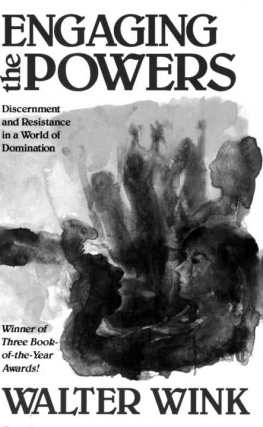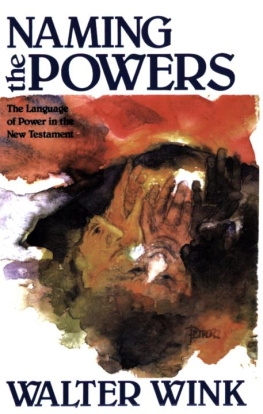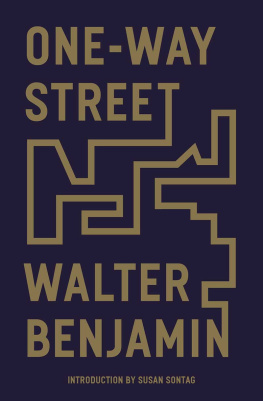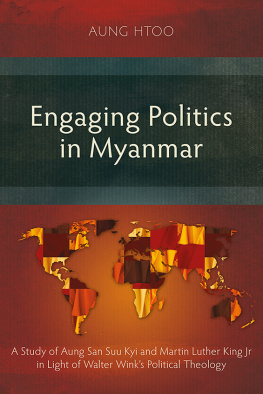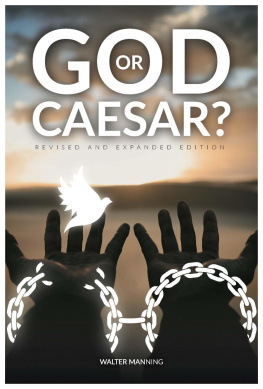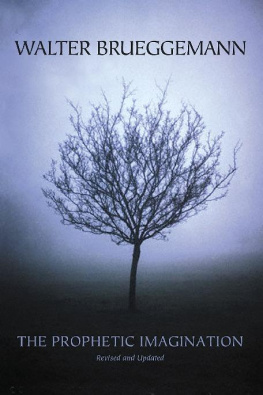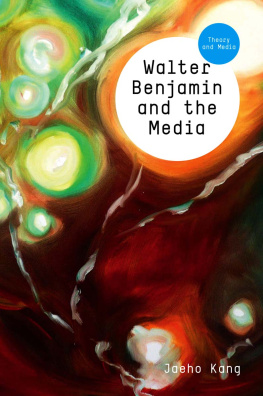Walter Wink - Walter Wink: Collected Readings
Here you can read online Walter Wink - Walter Wink: Collected Readings full text of the book (entire story) in english for free. Download pdf and epub, get meaning, cover and reviews about this ebook. year: 2013, publisher: Fortress Press, genre: Religion. Description of the work, (preface) as well as reviews are available. Best literature library LitArk.com created for fans of good reading and offers a wide selection of genres:
Romance novel
Science fiction
Adventure
Detective
Science
History
Home and family
Prose
Art
Politics
Computer
Non-fiction
Religion
Business
Children
Humor
Choose a favorite category and find really read worthwhile books. Enjoy immersion in the world of imagination, feel the emotions of the characters or learn something new for yourself, make an fascinating discovery.

- Book:Walter Wink: Collected Readings
- Author:
- Publisher:Fortress Press
- Genre:
- Year:2013
- Rating:4 / 5
- Favourites:Add to favourites
- Your mark:
- 80
- 1
- 2
- 3
- 4
- 5
Walter Wink: Collected Readings: summary, description and annotation
We offer to read an annotation, description, summary or preface (depends on what the author of the book "Walter Wink: Collected Readings" wrote himself). If you haven't found the necessary information about the book — write in the comments, we will try to find it.
Walter Winks writing has been described as brilliant, provocative, passionate, and innovative. His skills in critical scholarship were matched by an engaging and honest style that make his work a must read for twenty-first century theologians and all who seek deeper understanding at the intersection of Bible, theology, social ethics, and more.
Walter Wink: Collected Readings — read online for free the complete book (whole text) full work
Below is the text of the book, divided by pages. System saving the place of the last page read, allows you to conveniently read the book "Walter Wink: Collected Readings" online for free, without having to search again every time where you left off. Put a bookmark, and you can go to the page where you finished reading at any time.
Font size:
Interval:
Bookmark:
WALTER WINK
Collected Readings
Copyright 2013 Fortress Press. All rights reserved. Except for brief quotations in critical articles or reviews, no part of this book may be reproduced in any manner without prior written permission from the publisher. Visit http://www.augsburgfortress.org/copyrights/contact.asp or write to Permissions, Augsburg Fortress, Box 1209, Minneapolis, MN 55440.
Unless otherwise noted, Scripture quotations are from the New Revised Standard Version Bible, copyright 1989 by the Division of Christian Education of the National Council of Churches of Christ in the USA, and are used with permission.
The essay Write What You See is reprinted by permission, Polebridge Press, Willamette University, 900 State Street, Salem, Oregon 97301.
Cover design: Tory Herman
Cover image: Texture painting with paints iStockphoto / Artem Povarov
Library of Congress Cataloging-in-Publication Data is available
Print ISBN 978-0-8006-9987-1
eBook ISBN 978-1-4514-6518-1
The paper used in this publication meets the minimum requirements of American National Standard for Information SciencesPermanence of Paper for Printed Library Materials, ANSI Z329.48-1984.
Manufactured in the U.S.A.
This book was produced using PressBooks.com.
I am pleased that this book of readings from Walter Winks work is being published, for both personal and more than personal reasons. He was a close friend, beginning almost thirty years ago when we met at a professional meeting of Jesus scholars. Because of our friendship, I will refer to him as Walter in the rest of this foreword.
The more than personal reason is that he was one of the foremost American New Testament scholars of the last forty years. His many books and articles not only reflect thorough historical and interdisciplinary research but are filled with passionate applications to our lives today. The title of one of his earliest books, The Bible in Human Transformation, expresses the conviction that animated his vocation: the Bible has transforming power for individuals, communities and the world.
Walters passion for the transforming power of the Bible flowed into his life. He lived much of what he wrote about. He never succumbed to the scholarly temptation to become a curator of a museum of ancient texts. More than most of his academic colleagues in the study of Christian origins, including me, he lived his life as a Christian intellectual who moved from thought to praxis. In workshops around the world, he trained people about praxispractical means for changing the world. He engaged in perilous practice himself, including entering South Africa illegally during the decades of apartheid in order to encourage and equip black South Africans in the methods and goals of nonviolent resistance to oppressionmethods and goals grounded in Walters perception of God as revealed in Jesus.
Though I met him only in the 1980s, I had known about him since the fall of 1969 when I was in the first year of my doctoral program at Oxford. I had just embarked on three years of reading everything I could about the historical Jesus. I began with Jesus relationship with John the Baptizer, his mentor. I read everything I could find on him, including Walters 1968 book on John the Baptist. I was impressed. Indeed, I regarded him as the worlds leading authority on John. Little did I know that he was only about thirty when he wrote the book, just a few years older than I was. But he was a big name for me way back in 1969.
In the decades since, my respect and admiration for Walter and his work continued to grow. Indeed, he was one of the two or three colleagues in New Testament scholarship from whom I have learned the most. In my life as an itinerant lecturer, I recommend his books wherever I go (and thats now almost two million miles).
My personal favorites are Engaging the Powers and his small book, Jesus and Nonviolence. I used both in courses that I taught for many years in a public university. Students loved themand found them provocative, as Walters books always are.
Not only have I learned much from him, so has the discipline of New Testament scholarship as a whole. Several of his major themes have become widely shared by mainstream scholars. Without trying to be comprehensive, I mention the following notions that have now become part of the accepted wisdom of many scholars of the New Testament and early Christianity:
- The concept and language of domination systems. More than anybody else in New Testament studies, Walter has given us language for the most typical form of political and economic organization in the ancient world, and its importance for understanding Jesus, early Christianity, and, by extension, the Bible as a whole. And he makes it clear that domination systems continue in the modern and postmodern world.
- The claim that Jesus advocated nonviolent resistance. Jesus resisted the domination system of his time and did so through nonviolent protest and advocacy: protest against oppression and advocacy of a domination-free order brought about through nonviolence. In Walters exegesis of the familiar sayings in the Sermon on the Mount about loving enemies, turning the other cheek, going the second mile, and giving up your shirt as well as your cloak, he argues that these are counsels to and examples of active nonviolent resistance. Moreover, he takes the argument for nonviolence beyond the first century by describing the many times that it has succeeded as a significant means of social change in human history. Thus he counters the common notion that a commitment to nonviolence is unrealistic and argues that it is practical, wise, and right.
- His work on the principalities and powers. This is connected to his emphasis on domination systems, of course. But it deserves separate mention as another of his distinctive contributions. Indeed, he wrote a trilogy on the powers as a crucial element in the early Christian understanding of the world. He then wrote a fourth book on the powers in which he summarized in one volume his understanding of the powers that be. He not only highlighted this theme in the New Testament, but helped to make us aware that systemic evil is bigger than any of us as individuals. Whatever we think ontologically of the powers, they are real. Walter, more than any other New Testament scholar of our generation, helped us to see this.
It has been a privilege to write this foreword. Walter was a brilliant New Testament scholar, a valued colleague, a passionate Christian, and a dear friend. I commend to you not only this reader, but everything he wrote.
Marcus Borg
Walter Wink died on May 10, 2012, at the age of 76, leaving behind a legacy of progressive Christian thought and practice that powerfully integrated social justice concerns and biblical scholarship. Throughout his long and productive career, Wink wore many hats, all of them wella biblical scholar who made significant contributions to the discipline and brought interdisciplinary skills to the study of the Bible; a prolific writer of books, essays, and articles that speak to the inquiring ordinary man or woman as well as to practitioners and scholars; an activist for peace and nonviolent but aggressive resistance to evil who walked the talk and placed himself at risk in Latin America and South Africa; a pastor with a pastors heart; a champion of gay rights; and a much in demand speaker and workshop leader with his wife, June Keener Wink.
Font size:
Interval:
Bookmark:
Similar books «Walter Wink: Collected Readings»
Look at similar books to Walter Wink: Collected Readings. We have selected literature similar in name and meaning in the hope of providing readers with more options to find new, interesting, not yet read works.
Discussion, reviews of the book Walter Wink: Collected Readings and just readers' own opinions. Leave your comments, write what you think about the work, its meaning or the main characters. Specify what exactly you liked and what you didn't like, and why you think so.

